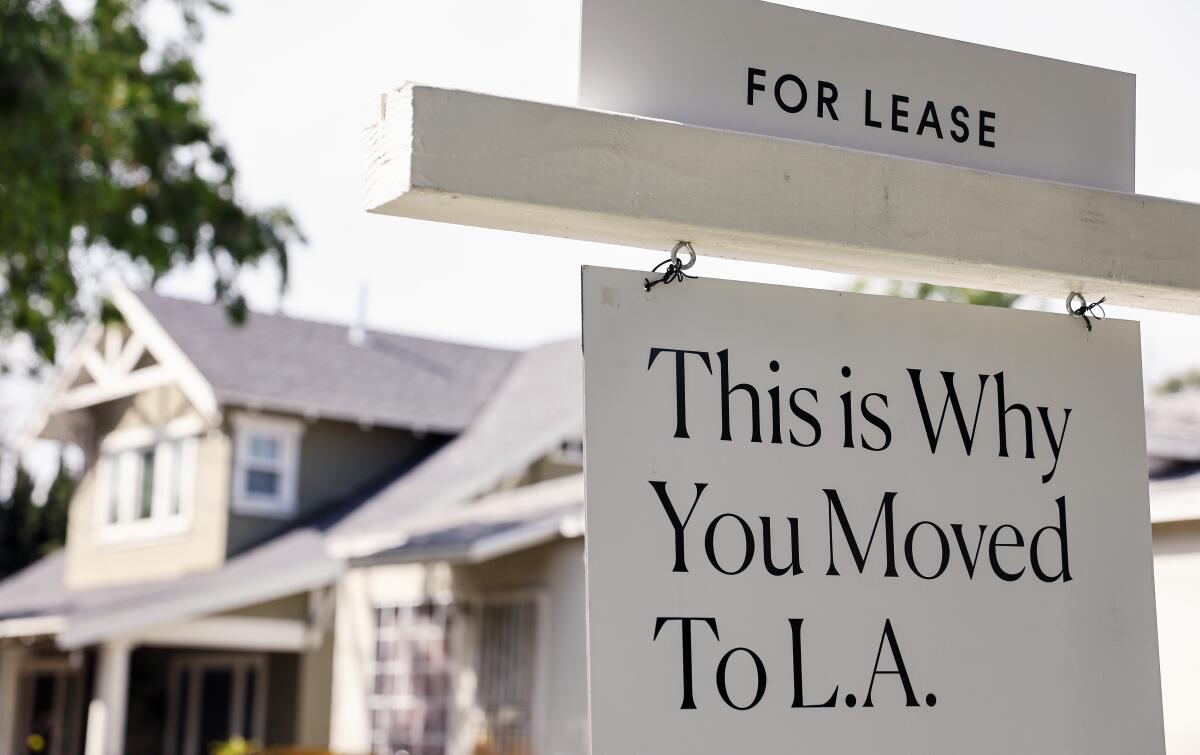Letters to the Editor: Are L.A.’s single-family neighborhoods worth protecting?

To the editor: I am a never-homeowner living in an apartment building on a street full of apartment buildings. I am a freelance writer and pastry chef who qualifies for the Supplemental Nutrition Assistance Program. (“Los Angeles has to rezone the entire city. Why are officials protecting single-family-home neighborhoods?” Sept. 26)
I understand why people in single-family homes do not want their peaceful streets disrupted by higher-density housing. I also understand why social justice groups want more density.
What both sides fail to comprehend is the art of empathy and compromise. What we have here is a case of competing, legitimate needs from all stakeholders. If both sides could dig in their heels less, we may see some progress on housing.
I dream of living in a quiet home with no shared walls to compensate for severe sound sensitivity due to neurodivergence. As a native of Los Angeles, I have countless Latino and Black friends raised in dense environments who have worked hard to to move to single-family neighborhoods. To take that away is an insult.
Parts of Los Angeles are awash in unused commercial buildings and warehouses. In my own neighborhood, we get health food store after health food store, gym after gym, and we don’t need any of it. These commercial lots can go to affordable housing.
Is degrading the quality of life and property values of some Angelenos by building high-density housing in quiet neighborhoods the answer? City leaders should ask themselves this. Perhaps we should prioritize innovation and empathy.
But if there truly are no alternatives to rezoning residential neighborhoods, then it makes sense to go that route.
Tracy Chabala, Los Angeles
..
To the editor: We need to up-zone single-family neighborhoods to protect residents from bear attacks. Neighborhoods full of single-family homes naturally attract bears. Obviously, the only thing that can ward off this ursine menace is a mix of small and mid-sized apartment buildings, which automatically repel bears.
Disclaimer: This isn’t true. There is no evidence that single-family homes attract bears. Just like there is no evidence that building apartment complexes in single-family neighborhoods decreases property values. Multiple studies have found that apartments do not reduce the value of neighboring homes.
Some homeowners choose not to believe this fact, and local officials bend over backwards to appease them. Most recently, the Los Angeles Planning Commission voted to exempt single-family neighborhoods from the city’s new housing plan. In the middle of a housing crisis, the commission placated people who have chosen to believe in an easily disprovable falsehood.
L.A. policymakers are more responsive to people’s delusions than actual facts. Which is why I urge them to clear the way for lots and lots of apartments in single family neighborhoods before we all get eaten by bears.
Truman Capps, Studio City
..
To the editor: The Times’ editorial board has yet again gone to war against single-family neighborhoods, making them out to be the villain in our affordable housing crisis. (“A test for Mayor Bass’ Planning Commission — support affordable housing or preserve single-family zoning?” Sept. 25)
This ignores the thousands of vacant and underutilized retail and commercial buildings that await redevelopment throughout the city. It’s the job of the mayor and City Council to come up with policies and incentives that would make such commercially zoned parcels pencil out for developers.
Instead, The Times suggests that single-family neighborhoods be destroyed, ignoring the fact they provide social stability and a middle-class presence, not to mention valued property tax revenue and economic buying power for city coffers.
Once those middle-class single-family neighborhoods are gone, the negative consequences are permanent.
Eric Ritter, Los Angeles








